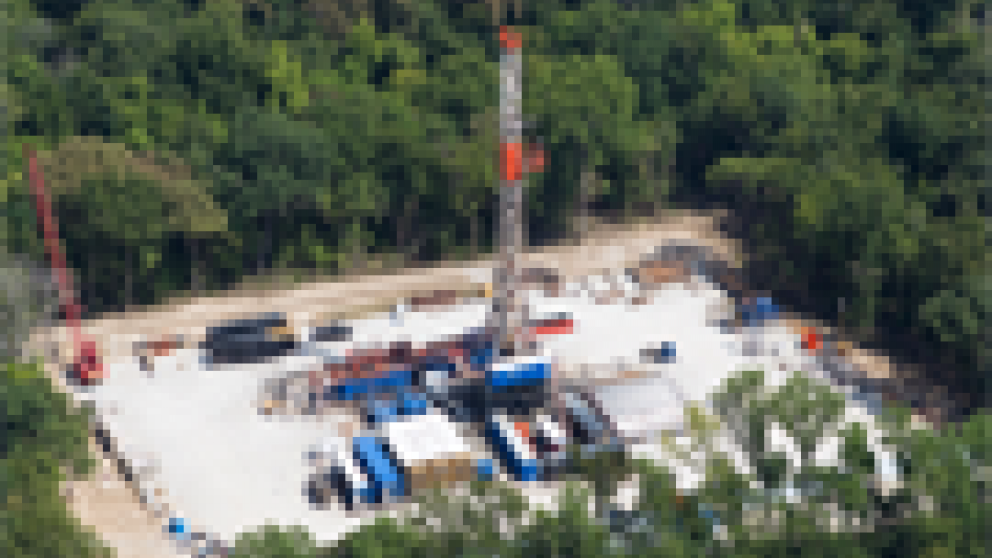Shale Gas in Europe: potential benefits or unpredictable risks?
27.05.2014

In recent years, the energy potential of unconventional gas reservoirs and especially shale gas has prompted strong interest from governments, business, and research sectors, leading to growing investments in exploration and development. In light of the projected growth in energy demand, natural gas is also often portrayed as a cleaner alternative to oil and coal (in terms of CO2 emission per unit of energy) as well as a suitable back-up capacity for renewable energy. The current shale gas boom in the USA has spurred interest in other regions of the world. In Europe, some countries have undertaken first steps into shale gas exploration, while others remain cautious due in particular to the potential environmental risks associated with the hydraulic fracturing technique.
The IASS workshop “Shale Gas in Europe – A Transdisciplinary Approach” that took place on May 21-22 aimed to identify and assess key issues of a possibly emerging shale gas industry in Europe while facilitating communication amongst key stakeholders and improving the understanding on all of the pertinent issues involved. The participants came from Germany, the USA, the UK, France, Poland and Ukraine, and included representatives from science, governments, civil society and industry.
The workshop discussed four main themes: the current status of shale gas developments in Europe, geopolitical and macroeconomic aspects, public engagement issues, environment and technology.
The discussions around the economic and political dimensions highlighted the many different – and sometimes country-specific – aspects of the shale gas issue, beyond the technical parts. Fundamentally, the many uncertainties and open questions regarding shale gas in Europe (recoverable reserves, costs, etc.) render any attempt at modelling future impacts a very difficult task. The analysis of the US case study provided useful insights on the economic and environmental repercussions of shale gas exploitation, but not enough to obtain a full picture of what could be the situation in Europe.
Government and public opinion positions on shale gas vary greatly across - and also within - European countries. Given the possible ramifications of shale gas exploitation, increased public engagement represents a key component of democratic participation and cannot be ignored in every concerned country. The discussion of a regional pilot programme in Poland offered an example of how local authorities can provide a framework for local communities to interact with industry and voice their opinion early in the decision-making process.
Finally, during the last session experts from science and industry presented the latest findings regarding technology- and environment-related issues. Topics such as fugitive emissions, the impact of fracturing fluids, induced seismicity and water management were explained and analysed in light of both scientific research and current industrial practices. Existing and future risk mitigation techniques were debated and the remaining uncertainties pointed out.
One of the discussion red lines throughout the workshop was of course the question of whether shale gas exploitation in Europe could help or instead undermine climate policy targets and particularly the further deployment of renewable energy sources. In this context, innovative CO2-free natural gas utilisation technologies could provide a more climate-compatible option if natural gas from unconventional sources were to play an increased role in the European energy system.
Overall, the current public debate on shale gas is often not sufficiently grounded on a fact-based understanding of the issue. The same often applies to the projections of the proponents of shale gas exploitation. Therefore, a transdisciplinary approach is required to discuss scientific evidence and societal perspectives to make informed decisions.
More information:
- Video interviews of the participants.
- Workshop Statement.
Read more about shale gas:
- The IASS research programme on the Role and Potential of Unconventional Gas.
- The Shale Gas Information Platform (SHIP) at the Helmholtz Centre Potsdam - German Research Centre for Geosciences (GFZ)